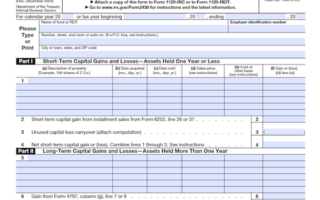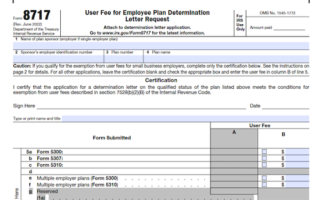Learn how to properly file Form 8868 for an extension to file tax returns for exempt organizations. Understand the rules for tax payments, filing penalties, and reasonable cause determinations, to make sure you are in compliance with the Internal Revenue laws of the United States.
What is Form 8868?
Form 8868 is a form used to extend the due date of a tax return. Filing this form alone does not extend the time to pay tax. The form should be filed by the due date of the return for which the extension is being requested. The necessary information includes the name and address of the entity, the return code, taxpayer identification number, an estimate of the tax liability, and the balance due. Interest will be charged on any unpaid tax, with a late payment penalty of ½ of 1% of any tax not paid by the due date, not to exceed 25% of the amount due. Reasonable cause criteria might apply in the case of a late filing penalty. All federal taxes must be paid electronically, by using EFTPS, a third party provider, or another trusted service.
IRS Form 8868 – Who Needs to Fill It Out?
Form 8868 is for organizations and individuals requesting an extension to file their federal tax return. On the form, filers must provide their taxpayer identification number, the Return Code for the type of return to be filed, estimate the amount of the tax reduced by credits, pay the balance due by the original due date, and enter the date that cannot be later than 6 months from the original due date. Tax payments must be made electronically via EFTPS. Failure to pay on time may result in interest and penalty charges. There is no signature required for this form.
Step-by-Step: Form 8868 Instructions For Filling Out the Document
To start the process of filling out Form 8868, file the form to the due date of the return for which you are requesting an extension. The form should be sent to the Department of the Treasury, Internal Revenue Service Center located in Ogden, UT 84201-0045 when not filing electronically. You must provide a separate form for each return you are requesting an extension for; blanket extensions are not accepted. As for Tax Payments, all federal taxes (including excise and income taxes) must be deposited electronically. When entering the address, include the suite number or P.O. box number. Any changes in the address must be reported to the IRS on Form 8822. Lines 1, 3a, and 3c must be filled out even if the organization has no tax liability; Line 2 should only be filled out upon request of an accounting period change. The form must be filed without any signature.
| Instructions for Filling out Form 8868 | Details |
|---|---|
| File by Due Date | File the form by the due date of the return for which you are requesting an extension. |
| Where to Send | Send the form to the Department of the Treasury, Internal Revenue Service Center located in Ogden, UT 84201-0045 when not filing electronically. |
| Separate Forms | Provide a separate form for each return you are requesting an extension for; blanket extensions are not accepted. |
| Tax Payments | All federal taxes (including excise and income taxes) must be deposited electronically. |
| Address Changes | If there are any changes in the address, report them to the IRS on Form 8822. |
| Required Lines | Lines 1, 3a, and 3c must be filled out even if the organization has no tax liability; Line 2 should only be filled out upon request of an accounting period change. |
| Signature | The form must be filed without any signature. |
Do You Need to File Form 8868 Each Year?
Yes, Form 8868 must be filed by the due date of the return for which an extension is requested, and a separate Form 8868 must be filed for each return. Taxpayers must also pay any taxes due by the regular due date of the return; failure to do so can result in interest and late payment penalties. Electronic Federal Tax Payment System (EFTPS) can be used to make payments or a trusted third party can be used. If an exempt organization has its address change, a separate Form 8822 needs to be filed. Reasonable cause determinations can also be made if a notice of penalty is received.
Download the official IRS Form 8868 PDF
On the official IRS website, you will find a link to download Form 8868. However, to make it easier for you, we are providing the link in our article, which comes directly from the official irs.gov website! Click to download: Form 8868
Sources:




